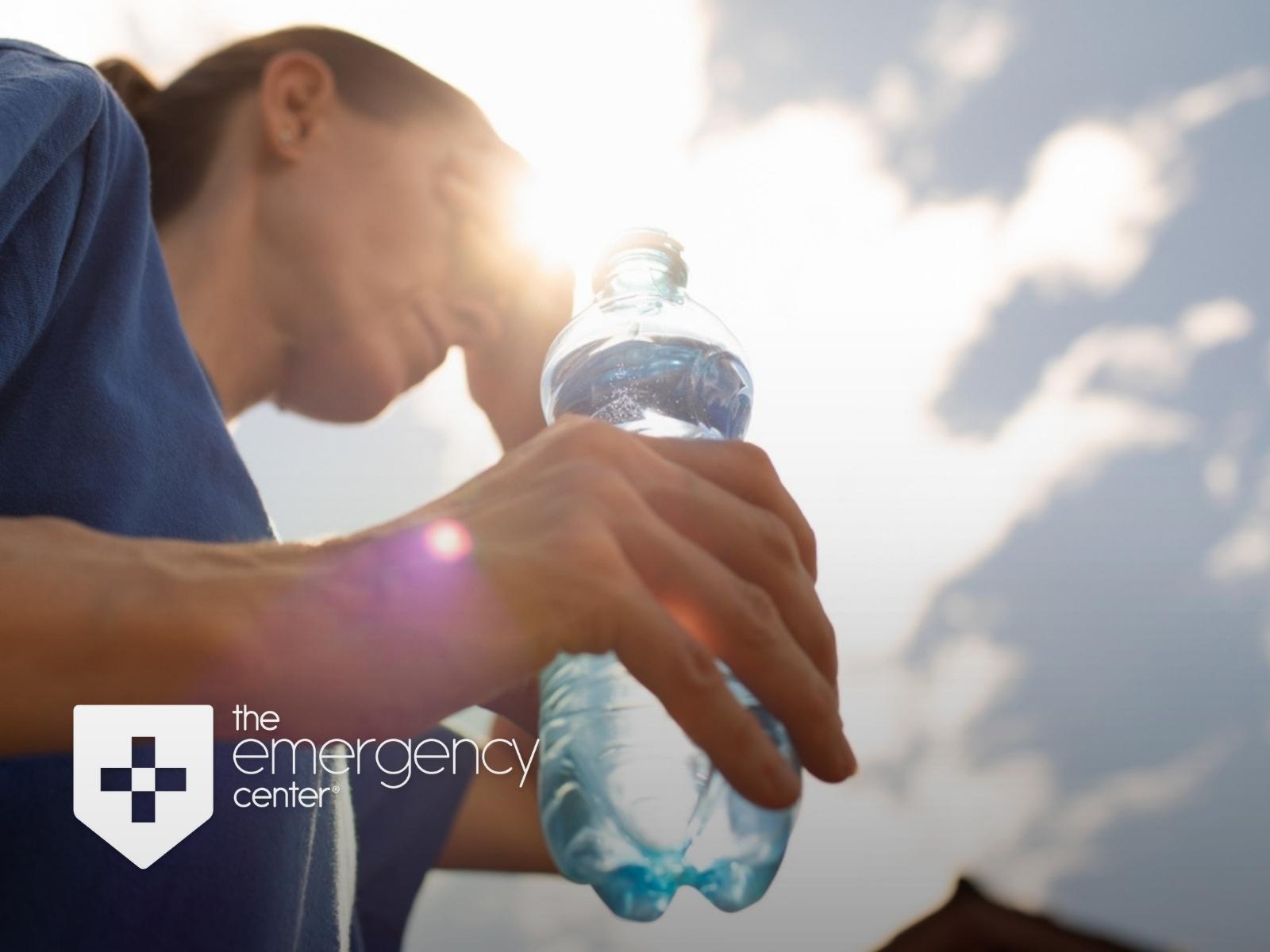When Dehydration Becomes an Emergency: Know The Signs & When To Seek Help
Understanding Dehydration: Causes, Effects & Health Risks
Dehydration is often underestimated, especially during the hot summer months or when you’re sick. Most people assume that grabbing a glass of water will solve the problem—but when dehydration becomes severe, it can quickly escalate into a life-threatening emergency. At The Emergency Center, we want our community to know the signs, symptoms, and seriousness of dehydration and when it’s time to seek immediate medical attention.

What Is Dehydration & Why It Happens
Dehydration occurs when your body loses more fluids than it takes in, leaving it without enough water to carry out normal functions. Fluids are lost through sweat, urination, diarrhea, vomiting, or simply not drinking enough water. While mild dehydration can often be corrected with fluids and rest, moderate to severe dehydration can have serious health consequences.
Early Symptoms 0f Dehydration You Shouldn’t Ignore
The early signs of dehydration are your body’s way of warning you to rehydrate. These include:
- Dry mouth and throat
- Increased thirst
- Decreased urine output
- Dark yellow urine
- Fatigue
- Dizziness or lightheadedness
- Headache
- Dry skin
These symptoms can usually be managed with rest and oral fluids, especially water or electrolyte solutions. However, if ignored, dehydration can worsen quickly.
Severe Dehydration Symptoms That Require Immediate Attention
As dehydration becomes more severe, symptoms may become more concerning:
- Rapid heartbeat or breathing
- Sunken eye
- Low blood pressure
- Lack of sweating
- Confusion or irritability
- Fainting
- Cool or clammy skin
- No urination for 8+ hours
- Seizures or loss of consciousness
In children, additional symptoms can include a sunken soft spot on the head, no tears when crying, and listlessness or excessive sleepiness.
These are red flags—signs that your body is under extreme stress due to lack of fluids and electrolytes. If you or a loved one exhibits these symptoms, it’s crucial to seek emergency care right away.
When To Go To The Emergency Room For Dehydration
You should visit The Emergency Center if:
- You’ve had persistent vomiting or diarrhea for more than 24 hours
- You’re unable to keep fluids down
- You show signs of confusion, fainting, or rapid heartbeat
- A child has dry diapers for more than 6 hours or appears unusually sleepy or unresponsive
- You’ve been exposed to extreme heat or physical exertion and start feeling dizzy, weak, or nauseated
Dehydration can be especially dangerous for infants, young children, older adults, and people with chronic illnesses like diabetes or kidney disease. These populations are more susceptible to complications like heatstroke, kidney failure, or electrolyte imbalances.
How Emergency Care Treats Moderate To Severe Dehydration
At The Emergency Center, we are fully equipped to treat all levels of dehydration—24/7, without the long waits of traditional hospital ERs. If you arrive with signs of moderate to severe dehydration, our experienced medical team can:
- Administer intravenous (IV) fluids to rehydrate you quickly
- Monitor electrolyte levels and correct any imbalances
- Conduct blood tests and urinalysis to assess severity
- Treat underlying causes like infection, heatstroke, or illness
- Provide anti-nausea or anti-diarrheal medication if needed
Our goal is to stabilize you quickly, relieve symptoms, and help you recover safely. We also offer observation rooms where patients can rest and recover for several hours under medical supervision—something most urgent care centers cannot provide.
How To Prevent Dehydration & Stay Safe
The best way to avoid a dehydration emergency is to stay proactive:
- Drink water consistently throughout the day
- Use electrolyte drinks when sweating excessively or ill
- Avoid excess caffeine and alcohol, which dehydrate you
- Take breaks and seek shade when in the heat
- Keep an eye on children, older adults, and those with chronic illnesses
Don’t Wait, Get Treated For Dehydration Before It Becomes Dangerous
If you’re unsure whether dehydration is serious, it’s better to play it safe. Come to The Emergency Center, where our no-wait, no-appointment-needed model means you’ll be seen right away by board-certified emergency physicians.
Because when it comes to dehydration, early intervention can prevent a crisis. Stay safe, stay hydrated—and when in doubt, we’re here to help.
The Emergency Center. Real Emergency Care. Real Fast.

The Emergency Center
San Antonio
11320 Alamo Ranch Pkwy
San Antonio, TX 78253
Phone: 210-485-3644
Conroe
4019 Interstate 45 N,
Conroe, TX 77304
Phone: 936-247-9457
